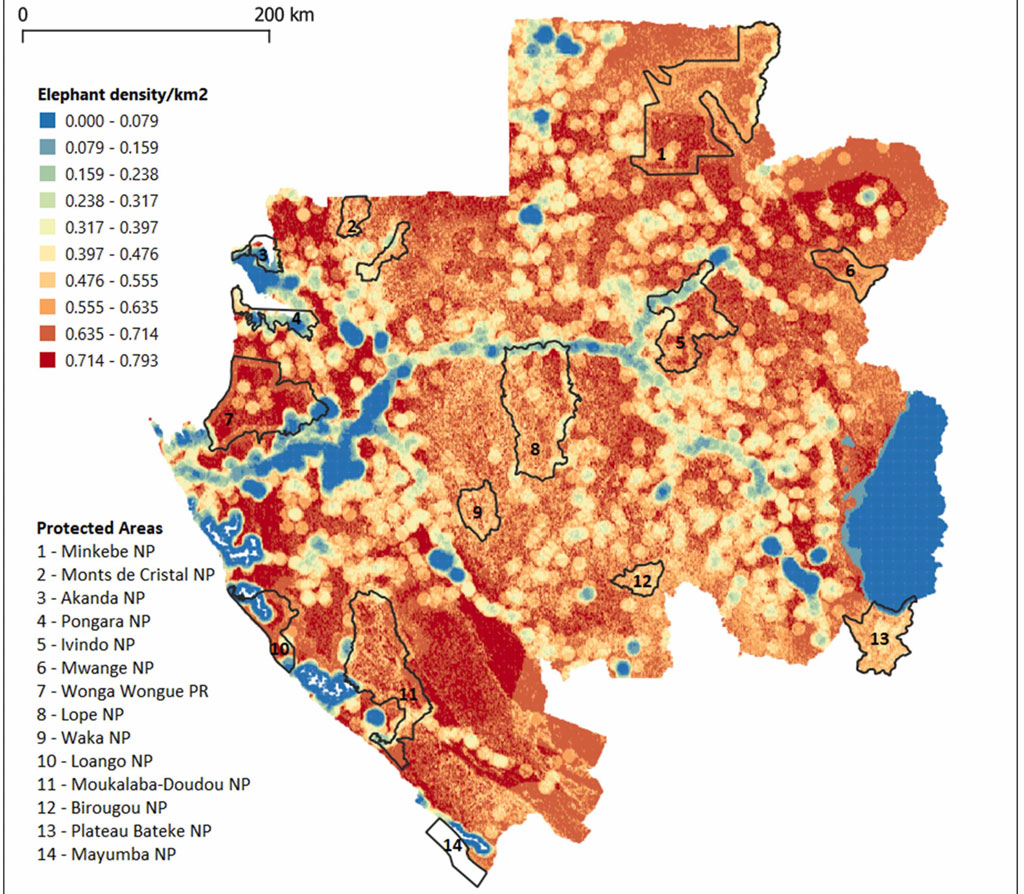The good news is that there are more forest elephants in Gabon than previously believed. A new study from the Wildlife Conservation Society (WCS), Gabon’s National Park Agency (ANPN) and Vulcan offers the first countrywide elephant population estimate in nearly thirty years.
Forest elephants were only recently formally recognised as a separate species by the IUCN and were immediately classified as “Critically Endangered”. This new research estimates that there are around 95,000 in Gabon, which equates to roughly 60-70% of the total global population. Astonishingly, although forest elephant numbers have been in freefall for the last century, Gabon appears to have bucked the trend, and forest elephants are believed to be present across some 90% of this Central African country.
Unlike savanna elephants, counting forest elephants from the air is almost impossible given their preference for dense forest habitat. Thus, scientists have had to search for new and inventive ways to replace aerial surveys as a method for estimating population size. One such method (used in the present study) involves collecting and analysing DNA using a genetic spatial capture-recapture model. Over three years, researchers collected 4,058 dung samples from across the country and set about identifying individual genetic signatures. Then, using complex statistical models, they used the data collected to approximate the average forest elephant densities in various regions and, by extension, calculate a population estimate.

As might be expected, the highest densities were calculated in flat areas of preferred habitat with low levels of human pressure and interference (such as Loango National Park). Conversely, the lowest densities occurred in regions of low habitat suitability, such as those near major cities, along roads, and across the Bateke savanna.
The authors also caution that although the results of their study are primarily positive, this does not discount significant local declines that Gabon has experienced due to poaching surges in recent years. For example, in Minkébé National Park, a previous study estimated a loss of up to 81% of the forest elephants in just a single decade, from 2004 to 2014. These pockets of low elephant density have yet to recover.
Forest elephants were once widespread throughout the forests of Africa, with a population that would have numbered in the millions. Today, there are fewer than 200,000 (and likely significantly less). Most of these are found in Gabon, placing significant pressure on the country to ensure their safety and future. Protected areas constitute 22% of Gabon’s total area, meaning that the vast majority of the forest elephants exist outside these spaces. The authors estimate that some 65% of the country’s elephants occur in logging concessions. However, an accurate estimate of densities and populations is the vital first step in adaptive management strategy, which this study now provides.
As the authors conclude, “These results are of interest to local, national, and international decision-makers concerned with the conservation of this species and its habitat, with the important ecological role of forest elephants on climate regulation potential of forests, and with forest elephants as a useful indicator for healthy, intact and well-governed forests.”
Resources
Access the full paper here: “Nationwide abundance and distribution of African forest elephants across Gabon using non-invasive SNP genotyping”, Laguardia, A., et al. (2021), Global Ecology and Conservation
Forest elephants going hungry as climate change stops trees from fruiting – read more here
African, Asian & forest elephants – what’s the difference? – read more here

To comment on this story: Login (or sign up) to our app here - it's a troll-free safe place 🙂.![]()






